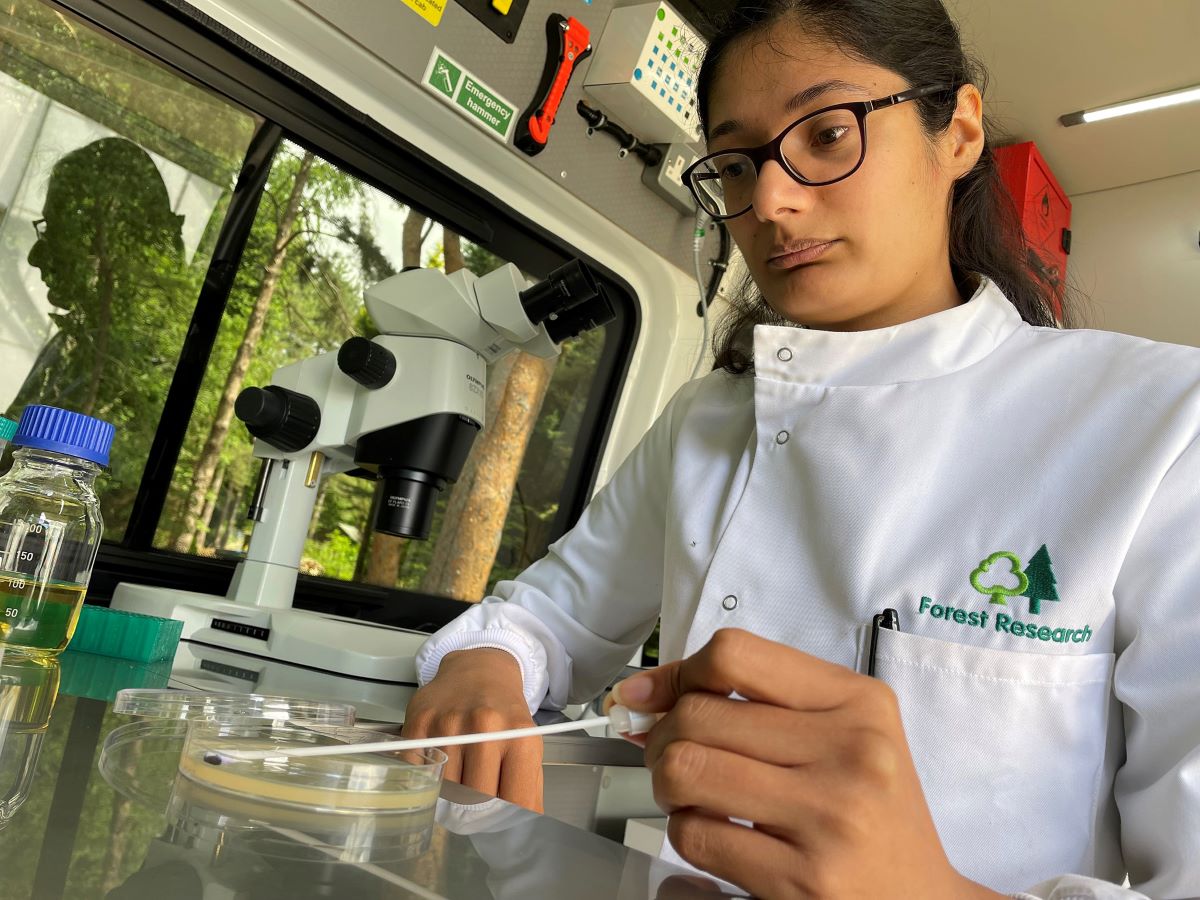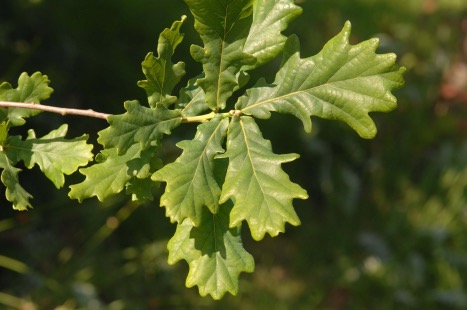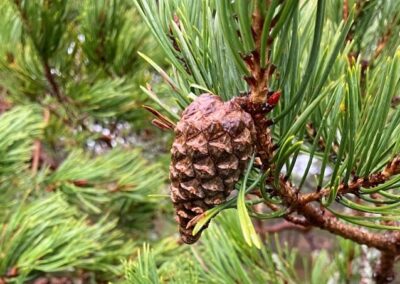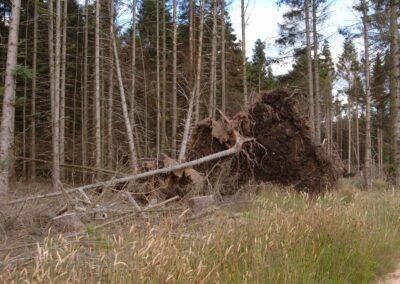Assessing genetic susceptibility to acute oak decline
(Queen Mary University of London)
Project status Complete (April 2022 – March 2025)
Context
Acute oak decline (AOD) is a complex syndrome affecting thousands of oaks in the UK, many of which die each year. AOD has been associated with multiple risk factors, some of which are expected to intensify with climate change. Over the past four years, we have sequenced the whole genomes of 1561 individual oak trees sampled across over 60 sites with generous funding from Defra through Action Oak and the Centre for Forest Protection pilot year. Initial studies analysed oak population structure and AOD-related microbiome in the foliage.
In this final stage of the project we will estimate how much susceptibility to acute oak decline is inherited, look for genes that may confer resistance and predict individuals most likely to be resistant. We will also use genomic data to look for associations with traits of interest to foresters, and combine our data with data from Europe to predict environmental adaptation in oaks.
Research aims and objectives
- Estimate the heritability of susceptibility of oak trees to AOD, and identification of parts of the genome associated with AOD resistance or susceptibility.
- Find possible parts of the genome related to phenotypes of interest to foresters and ecologists.
- Find parts of the genome related to environmental variables across UK and Europe oak populations.
Project description
Tissue and phenotype collection: Forest Research (FR) will select 400 trees, take swabs from AOD lesions, take leaf samples and phenotype the trees. FR will analyse swab samples to confirm AOD infection.
Genome sequencing: Kew will arrange the extraction of DNA from the samples and the whole genome re-sequencing of the DNA. This novel data will be made available on a public repository. Together with data already generated we will have approx. 30TB of total oak genomic data for around 2000 individuals. We will align raw reads to the oak genome and call genome-wide variants (points of difference between individuals).
GWAS and genome prediction: We will carry out Genome Wide Association Studies (GWAS) to test for associations between genome-wide variants and presence/absence of acute oak decline. If this evidence indicates a genetic component to susceptibility, we will carry out ‘genomic prediction’. This is a way of calculating breeding values for individual trees and can identify oak trees that should be used for future plantings. GWAS will also be carried out for useful phenotypic traits.
Genome-environment association: Additionally, we will carry out genome-environment association studies, which look for associations between points on the genome and environmental variables. To augment our dataset, we will download published datasets from Europe.
Outputs
This study should produce of one of the largest genomic and phenotypic studies ever conducted on forest trees and will result in policy-relevant journal papers quantifying the genetic component of susceptibility to acute oak decline, identifying parts of the genome associated with resistance, environmental adaptation and other traits. It could also produce breeding values that inform future selections for planting and breeding programmes.

Larval galleries of the beetle Agrilus biguttatus under the bark of an oak tree affected by acute oak decline
Share this project on social media
Related Projects
Our Partners
Social media
Explore
Contact
© 2022 Centre for Forest Protection. All rights reserved.


